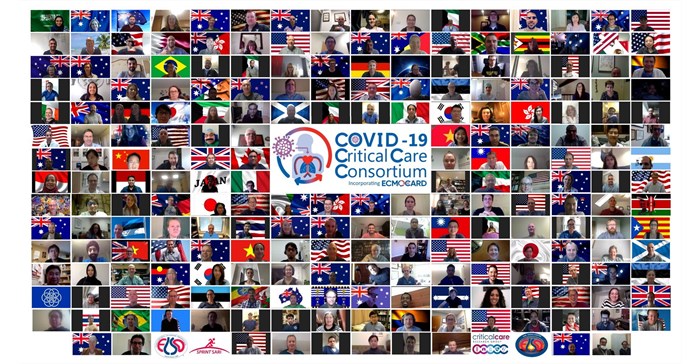Groote Schuur Hospital and UCT join global Covid-19 intensive care study

The study is hosted by the Covid-19 Critical Care Consortium (Covid Critical), an international group which has quickly expanded to almost 400 hospitals and research facilities in 52 countries since it was established in January 2020.
"Doctors, nurses and healthcare workers are doing their very best for every patient they see, but during a pandemic involving a new disease like Covid-19, it can be very challenging to know how well you are doing. The disease and treatments are new to everyone and no context is completely the same.
“In addition, many of us are working in situations where resources are scarce. Every day, we are making decisions about what is the best strategy for a particular patient. How can we use our resources to help the most people as effectively as possible. The Covid Critical study can help us make those decisions better by providing the most up-to-date information, fuelled by global research and collaboration," says Professor Ivan Joubert, the head of critical care at GSH and UCT.
A bit like a jigsaw puzzle
Covid Critical’s aim is to equip all intensive care clinicians, regardless of nationality or affiliation, with the best and most up-to-date information to save lives and improve patient outcomes during the pandemic and beyond.
Participating member sites are collecting de-identified patient information from their intensive care units and sharing to the consortium’s database. As that database grows, so does the potential for ground-breaking science that might ultimately change the course of Covid-19 treatment in critical care.
“Right now, this pandemic is a bit like a jigsaw puzzle, where there are pieces of information about caring for Covid patients scattered all over the globe. If the world shares all of its data, as we are doing through our consortium, we can bring all these disparate jigsaw puzzle pieces together to create a clearer picture of what these patients need in ICU and how to save lives.”
“With enough data, we will start seeing patterns in what works and when; for example, when might be the best time to ventilate a patient or whether or not to use ECMO (extra-corporeal membrane oxygenation)," says Professor John Fraser from the University of Queensland, who is the project lead.
The anonymised data will be analysed and distributed by data scientists at the University of Queensland in Australia and Oxford University in England. Once the database is large enough, the scientists will apply AI (artificial intelligence) techniques to generate insights quickly based on big data.
Up-to-the-minute clinical insights
The consortium is working with IBM to design a dashboard app that will present these insights to clinicians quickly on a mobile phone or laptop to inform them when treating their own patients. Contributing centres will have the advantage of knowing the data interpretation is truly relevant to their situation and based on their contributions.
“It’s exciting to think that Covid Critical’s research may one day lead to all frontline health workers, regardless of nationality or affiliation, having access to the best and most up-to-the-minute clinical insights, right by their patients’ bedsides through their phones or computers,” says Dr David Thomson, the local principal investigator and part of the GSH and UCT critical care team.
The Covid-19 Critical Care Consortium study is supported by ISARIC (International Severe Acute Respiratory and emerging Infection Consortium), Australia’s Prince Charles Hospital Foundation, Wesley Medical Research and Queensland Health.





























